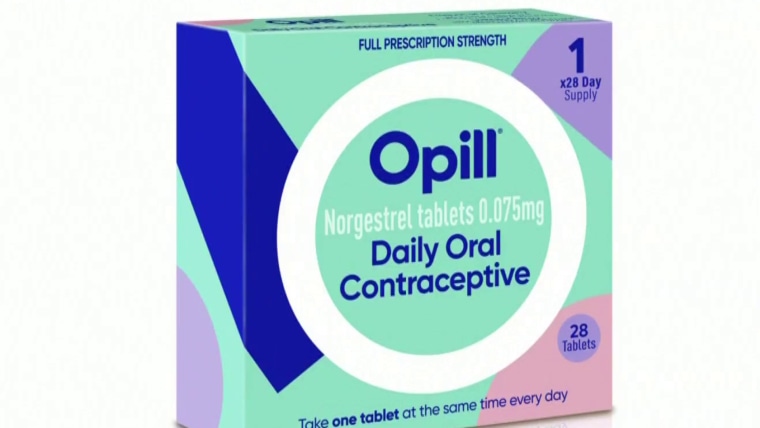The Food and Drug Administration’s decision Thursday to approve the country’s first nonprescription oral contraceptive is expected to expand birth control access for millions of people. But the medication, called Opill, will not be available for sale immediately, and some details about the rollout have yet to be hammered out.
Here is what we know so far:
When will Opill be on store shelves?
Opill, a progestin-only oral contraceptive, is expected to hit stores in “early 2024,” according to a spokesperson for the pill’s manufacturer, Perrigo Co. The manufacturer was not able to offer a more precise timeline for when distribution will begin.
Will customers have to ask pharmacists for Opill?
Not necessarily. Opill was approved by the FDA to be on store shelves like any other over-the-counter medication, such as Tylenol.
“If it’s called over-the-counter, that means you walk in and you could buy it,” said Dani Lynch, owner and pharmacist at Thrifty Pharmacy, an independent pharmacy in Oklahoma City.
Where exactly the product will sit in a store will be at retailers’ discretion, Perrigo’s spokesperson said, as well as whether retailers choose to lock it behind anti-theft protection.
CVS said it did not yet have details about its plans for Opill, and Walgreens did not immediately respond to an inquiry from NBC News. Lynch said she intends to keep Opill at the pharmacist’s counter even though a prescription won’t be required for it.
“People, especially kids, will not ask for guidance,” she said. “My thought is that I will keep it behind the counter and then they have to ask, and then we will get to be able to visit with them about it.”
How much will Opill cost?
Perrigo has not released pricing information but plans to in the coming months, before Opill arrives in stores.
“We are committed to ensuring that Opill is widely accessible and affordable,” Frédérique Welgryn, Perrigo’s global vice president for women’s health, said in a statement to NBC News. “We are also working on a consumer assistance program to help some women and people who would benefit from using Opill, but are struggling to make ends meet.”
The company said more details about that program will also be announced in the coming months.
Where will it be sold?
Opill is expected to be sold at drug stores, convenience stores, grocery stores and online, the FDA said. Perrigo is still figuring out which particular retailers and online distributors it will sell through and will announce those in the coming months, the spokesperson said.
What is Opill’s history?
The FDA first approved Opill as a prescription birth control in 1973. Pfizer marketed it for more than 30 years under the name Ovrette before marketing was discontinued “solely for business reasons (i.e., not safety or efficacy reasons),” according to a briefing document on the FDA’s website.
Known as a “mini-pill” because it contains a single hormone as opposed to a combination of progestin and estrogen, Opill has extensive safety and efficacy data: It has been found to be 93% effective at preventing pregnancy.
HRA Pharma, a Perrigo company, acquired rights to the medication nearly a decade ago with the intent to bring it over-the-counter.
“It’s been a long journey,” Welgryn told Fortune earlier this year. “And I’m not going to tell you that it’s nice and easy and rainbows and unicorns.”
Various medical groups and reproductive rights advocates lauded Thursday’s FDA approval. The American College of Obstetricians and Gynecologists called it a “critically important advancement in the accessibility of reproductive health care,” and the American Medical Association urged federal regulators to approve more over-the-counter contraceptives.
“It is important patients have options when choosing which type of birth control works best for them,” Dr. Jesse Ehrenfeld, president of the American Medical Association, said in a statement. “We hope this is just the first of several to be approved, and we urge the FDA to consider applications from the full range of available oral contraceptives for over-the-counter access.”
In the meantime, over half of U.S. states have laws that allow people to get hormonal contraceptives prescribed by pharmacists, rather than doctors.







